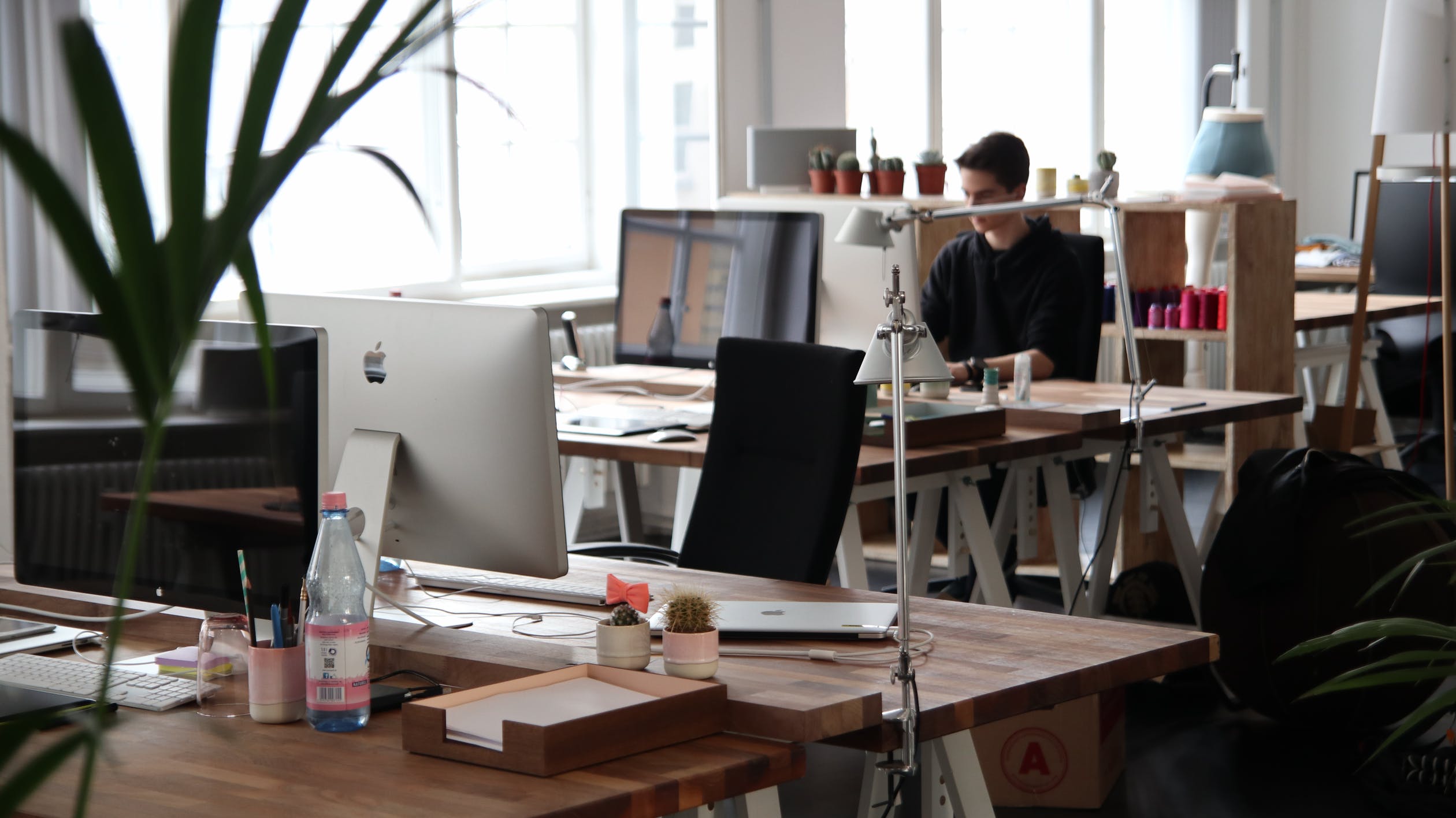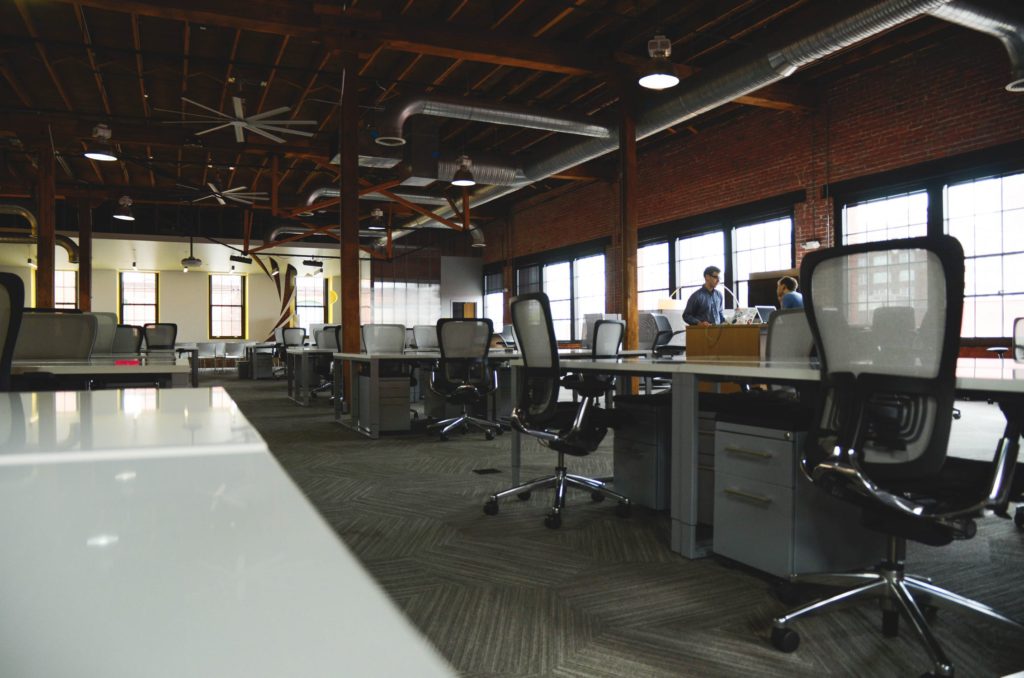Lots of us are now working from home but finding it difficult to keep our productivity up.
Sound familiar?
We’re going to give you some ideas to help you create a quiet, stress-free environment in your office.
It’s critical that you analyse your workplace’s physical attributes to start with so you can eliminate the obvious shortcomings in your setup.
The first thing to investigate is the flow of air and of the temperature where you work.
This aspect of your working environment is a hugely neglected area but can have a massive impact on your work.
Your workplace should always have the correct balance of airflow, temperature, and humidity.
Consider bringing in plants and opening the windows to keep the humidity level in your office at a healthy level. If you want to achieve your deadlines, getting some fresh air could be a big help too.
In concert with this, if you can, increase the amount of sunlight that enters the building through windows. By doing this, you increase the amount of natural light in your office.
This will help to prevent eyestrain, headaches, or blurred vision. You’ll be way more productive, healthier, and happier if you have good access to natural light.
Another good tip is to always keep a glass of water on your desk.
Water can also boost your sleep quality and energy levels, as well as your mental clarity, attentiveness, and alertness. As a result, ensuring that we always top the water bottle on our desk up could be incredibly helpful to productivity – and our health.
Reducing the number of distractions in your life will help you produce better work, too.
Turn all your social media off if you’re trying to get the serious stuff done. This avoids constant interruptions and the FOMO (fear of missing out) associated with the idea that everything must be acted on the second people post it.
Turn your phone off and have calls diverted to voicemail for you to listen to at a convenient time when you aren’t concentrating on important tasks.
You should also keep emails at bay as well. These can be a huge time suck and are best done at either end of the day. Put filters on and keep non-urgent communications in a separate file to be read in downtime rather than have them cut into your workload.
Like air flow, food is a much-neglected component of productivity. Eating junk food and drinking copious amounts of coffee is not a great recipe for being alert and together at work.

It is well known that eating such food leads to extreme sugar highs and lows and creates havoc with consistency and concentration.
The food you consume fuels and energises your workdays. A healthy diet is essential for a positive outlook on life if you want to remain alert and focused.
In eating sensibly, moderation is essential, and you can do this by paying attention to what you eat for your main meals and avoiding junk food at work.
You’ll prevent the crash after eating junk food by snacking on nutritious items like fruit, nuts, or olives, which keep you fuller for longer.
Getting your physical environment properly organised avoids another huge time sink.
Trying to find that elusive file or bit of paper takes longer than filing it properly or putting it into a system in the first place.
Invest in efficient storage – both physically and digitally. Decent shelves and cupboards and filing cabinets are key to being able to work well.
Wall shelving enables you to maximise floor space so you can squeeze in ergonomic desk chairs and other creature comforts.
Software like Evernote enables you to file and easily find, not just your “real” work but also those odds and ends we all put to one side, “just in case.”
Another consideration is whether you have people come to your place of work for meetings or consultations. If you do, it is worth setting aside a specific area dedicated to the task, with proper meeting room chairs, a whiteboard, and a means of doing presentations easily.
In an age of Zoom and video communication, it’s also important to look the part. Keeping your desk or workplace tidy is key. Make a point of cleaning it and tidying up at the end of each day. The discipline of doing this will help your productivity by making you organised by default.
Once you’ve tidied your desk, take a few moments to sit and write a to-do list for the following day, while things are fresh in your mind, and you have the perspective of not being in the middle of your day and juggling 50 different things.
Don’t make the list too long or it will seem overwhelming. Prioritise moneymaking, income-producing items first and leave shopping for floor paint or milk for later as things like this will just lead you to procrastinate and put off the important stuff.
Sorting out your timber ceiling when you have three return calls to make to excellent prospects is really not the best use of your time.
Keep up to date with changing technologies and ways of making your workday more efficient. For instance, if your job involves lots of writing and your typing speed is not great, look at dictation systems which allow you to spend more time thinking about the task you are involved with rather than the physical writing of it.
Nurture a sense of thinking ahead. Anticipating problems before they happen is one way that you can increase your efficiency and reduce your hassle.
Our final tip – make lists.
Tick off each item as you go, or cross it through. Making a list gives you immediate accountability. It’s there in black and white – you have to do it. Like optimising your office space, optimising your working practices will pay dividends in the long run and give you way more time to spend enjoying more downtime.
